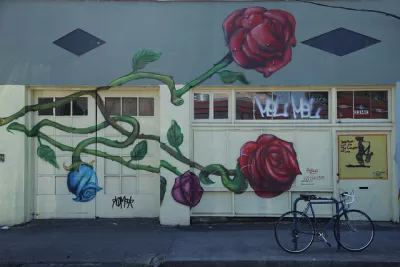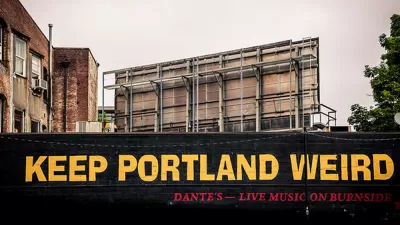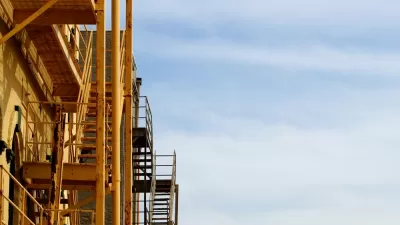A five-minute video funded by the James F. and Marion L. Miller Foundation tells the story of black communities struggling to preserve their traditions in what's been called the whitest city in the United States.

Oregon Humanities magazine recently debuted "Future: Portland," a short video produced by Ifanyi Bell and inspired by an essay Bell wrote for an earlier issue of Oregon Humanities about the challenges of growing up black in Portland (or as the essay puts it, growing up "tolerated and underestimated" in Portland). According to a post on the Oregon Humanities website, the five minute video includes "civic leaders [describing] the loss of Portland’s strong black communities and the hope of restoring them in the future."
Casey Parks reports on the video for The Oregonian, noting especially that no one in the video uses the word gentrification. "They don't have to. The stories African Americans tell of home in 'Future: Portland' do more to tell the story of this changing city than any buzzword can," writes Parks.
The article by Parks provides more of a backstory on Bell's process in creating the video but also the opportunity the video means to seize. Bell is quote directly in the article: "This is an opportunity for Portland to do what no other city has done, to really wrestle with these issues and come up with some kind of action….I no longer have to convince people there is a problem. We understand what's at stake. The most difficult part is finding out what to do with this knowledge."
FULL STORY: Loss and Hope for Portland’s Black Communities

Planetizen Federal Action Tracker
A weekly monitor of how Trump’s orders and actions are impacting planners and planning in America.

Maui's Vacation Rental Debate Turns Ugly
Verbal attacks, misinformation campaigns and fistfights plague a high-stakes debate to convert thousands of vacation rentals into long-term housing.

Restaurant Patios Were a Pandemic Win — Why Were They so Hard to Keep?
Social distancing requirements and changes in travel patterns prompted cities to pilot new uses for street and sidewalk space. Then it got complicated.

In California Battle of Housing vs. Environment, Housing Just Won
A new state law significantly limits the power of CEQA, an environmental review law that served as a powerful tool for blocking new development.

Boulder Eliminates Parking Minimums Citywide
Officials estimate the cost of building a single underground parking space at up to $100,000.

Orange County, Florida Adopts Largest US “Sprawl Repair” Code
The ‘Orange Code’ seeks to rectify decades of sprawl-inducing, car-oriented development.
Urban Design for Planners 1: Software Tools
This six-course series explores essential urban design concepts using open source software and equips planners with the tools they need to participate fully in the urban design process.
Planning for Universal Design
Learn the tools for implementing Universal Design in planning regulations.
Heyer Gruel & Associates PA
JM Goldson LLC
Custer County Colorado
City of Camden Redevelopment Agency
City of Astoria
Transportation Research & Education Center (TREC) at Portland State University
Jefferson Parish Government
Camden Redevelopment Agency
City of Claremont





























